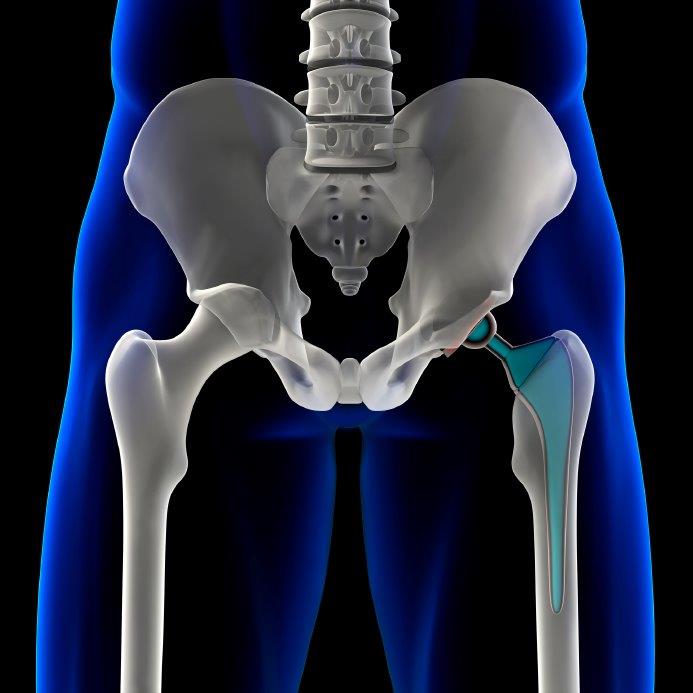 Mr Jeremy Latham, Consultant Orthopaedic surgeon, discusses his approach to hip replacement surgery. His area of expertise is complex hip problems including dysplasia, young adult hip disorders and treatment of peri-prosthetic fractures.
Mr Jeremy Latham, Consultant Orthopaedic surgeon, discusses his approach to hip replacement surgery. His area of expertise is complex hip problems including dysplasia, young adult hip disorders and treatment of peri-prosthetic fractures.
Total Health asks ten top hip Consultant Surgeons the following questions:
-
Q1: Which type of hip prosthesis do you routinely use and why?
-
Q2: How long have you used this choice of hip replacement?
-
Q3: Do you use this hip prosthesis exclusively?
-
Q4: If you sometimes use alternative hip prostheses please specify which type(s) and why?
-
Q5: What hip procedure do you use?
-
Q6: If you needed a hip replacement now which prosthesis and procedure would you opt for?
-
Q7: What over-riding piece of advice would you give to someone considering having hip replacement?
Q1: Which type of hip prosthesis do you routinely use and why
"I use different hip prostheses depending on the patient's age, gender and expectations. For men up to their mid-fifties, I use the Adept Hip Resurfacing from MatOrtho. The evidence shows that resurfacing is an excellent option for this age group, and the Adept is performing well in the National Joint Registries of England and Wales, and Australia."
"For my middle aged and younger women patients I use the DeltaMotion ceramic on ceramic hip replacement from DePuy. Many of my younger patients enjoy doing Pilates, playing tennis, sailing and skiing. They need a hip replacement with a low risk of dislocation and premature wear that will allow them to do these activities. Ceramic bearings work well in younger patients and they provide an excellent compromise between function and durability."
"In patients who are 55-70, I use an uncemented hip like the TriLock from DePuy, with the Pinnacle cup, and a ceramic on polyethylene bearing. Again this gives an excellent functional result, and the data from the joint registries show that they work well. In my older patients I use a cemented stem such as CPT from Zimmer, with an uncemented cup. The bearing that I use in this hip is made from ceramic on polyethylene. This hip replacement has excellent long term outcomes, and is a safe predictable choice for people who don't need a high performance bearing."
"In patients who have an increased risk of dislocation, I use a dual-articular cup like the SERF (Summit), Avantage (Biomet) and ADES (Zimmer). These have been used in France for many years and have excellent outcomes in older patients. In complex situations for example when thereis bone loss or difficult anatomy, I use the Delta TT cup from Lima."
Q2: How long have you used this choice?
"I've used hip resurfacing for 15 years, and DeltaMotion for the last 5 years. I've used cemented stems throughout my orthopaedic training and consultant career. I've used uncemented stems and cups for the last 10 years and they work very in my hands."
Q3: Do you use this prosthesis exclusively? If not, please indicate the approximate percentage of procedures that you perform using it.
"About 10% of my patients will have a resurfacing, and 40% will have an uncemented cup and stem. The remainder will have a cemented stem and uncemented cup."
Q4: If you sometimes use alternative hip prostheses please specify which type(s) and why?
“I try to tailor the implants to my patients' needs, and there isn't one solution that would suit everybody, which is why I use a variety of implants."
Q5: What procedure do you use?
"I use a small posterior approach as this works well in my hands. It leaves a neat scar and doesn't affect the main muscles around the hip. This means that patients don't limp, and it allows me to place the components into place accurately and consistently well."
Q6: If you needed a hip replacement now which prosthesis and procedure would you opt for and why?
"I would consider having a hip resurfacing if my bones were the right size and quality. This is because I think it offers the best combination of durability and function. I'm aware of the concerns about metal particles, and would expect to be monitored for life. I would choose my surgeon very carefully, but leave the choice of implant and approach to him/her. If my bones weren't appropriate for resurfacing. I'd have an uncemented stem and cup, with a ceramic on polyethylene bearing. This is a safe predictable alternative for someone of my age and expectations."
Q7: What over-riding piece of advice would you give to a patient about their need for hip replacement?
"Hip replacement surgery is one of the best operations ever. For the vast majority of people it is life transforming and the only regret that they have is that they didn’t do it sooner! Make sure you go to a surgeon who does a lot of hip replacements (more than 100 per year) and who has an established reputation. He/she will be up to date with current developments and will have the skills and experience to do the right thing for you. Having hip surgery is a big event and you need to trust the person who will take you through this difficult time."
See also answers from the following hip replacement experts:
- Mr Howard Ware
- Mr Ed Davies
- Mr Winston Kim
- Mr Mark Rickman
- Mr Paul Jairaj
- Mr Stephen Jones
- Mr Warwick Radford:
- Miss Samantha Tross
- Mr Charles Willis-Owen











